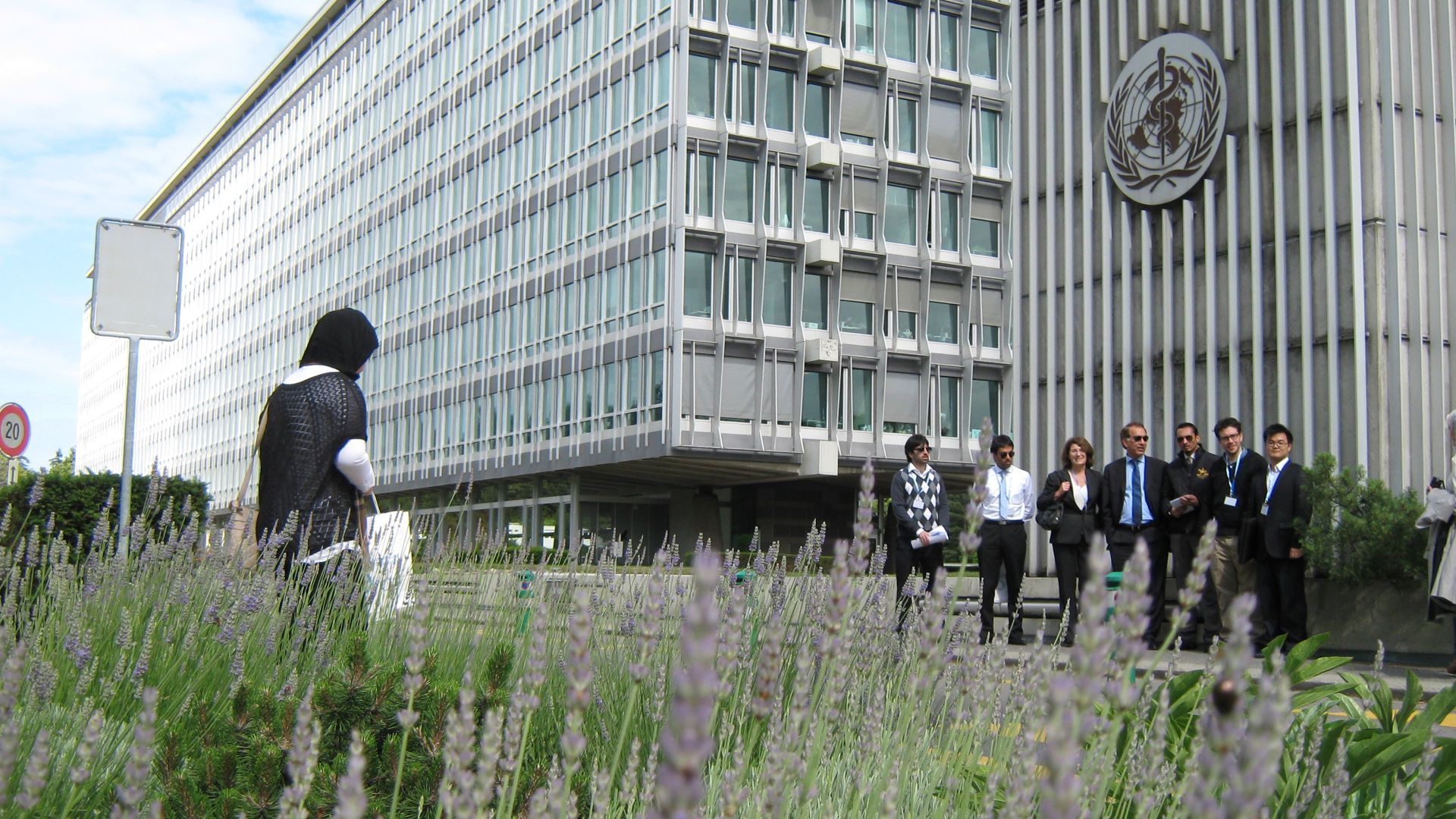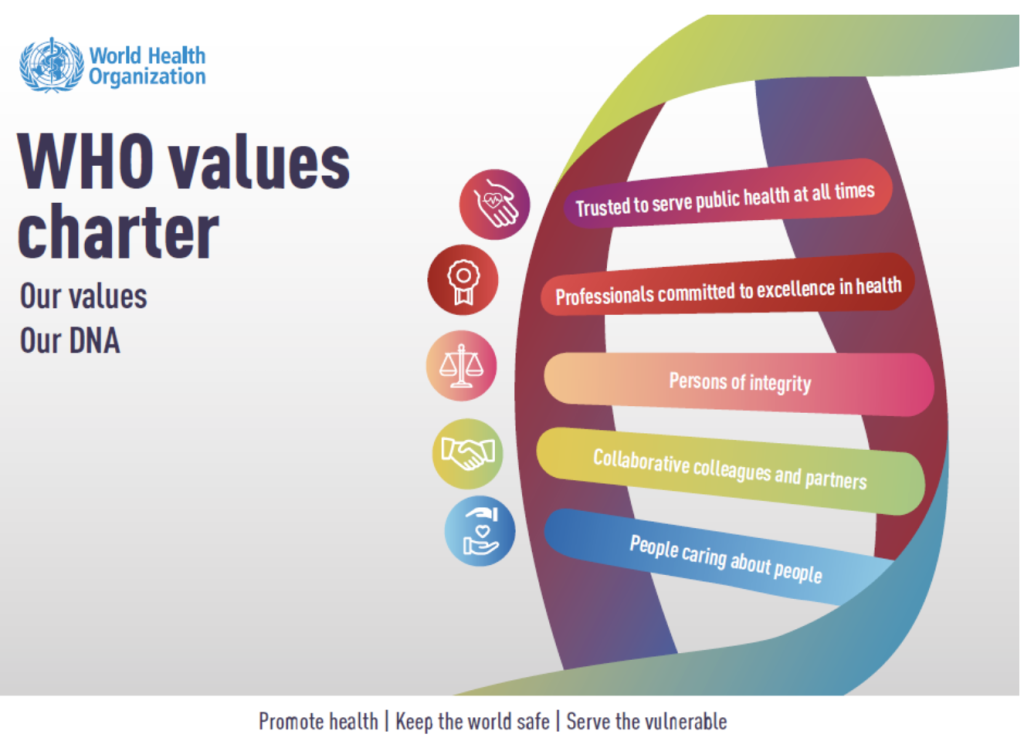
The Imperial World Health Organization Collaborating Centre for Public Health Education & Training (WHOCC) was created in 2007 to support the work of the World Health Organization and its founding objective: ‘the attainment by all peoples of the highest possible level of health’. Established by the WHO Global Committee with the support of the British Government, the WHOCC has a special focus on global health issues and health services research, in addition to public health education and training. This year, Imperial WHOCC was redesignated for another four years- a huge achievement. Hear from Rachel Barker, Support Officer, at the WHO Collaborating Centre and Department of Primary Care and Public Health, about the WHOCC’s work.
Following an intensive and rigorous process, the World Health Organization Collaborating Centre of Public Health Education and Training (WHOCC) Imperial College London, has been re-designated for another four years, securing its vital work in improving global health and wellbeing until 2027. During the previous designation period, Imperial WHOCC shared its expertise with Low-and-Middle-Income-Countries (LMIC) to assist them with their endeavors towards meeting the UN Sustainable Development Goals (SDG). In respect to SDG 3, ‘Good Health and Well-Being’, Imperial WHOCC has collaborated with stakeholders, countries, and international organisations on improving access to Universal Health Coverage (UHC).
Commenting on the news, Professor Salman Rawaf shared his congratulations to the Imperial WHOCC team, “The WHOCC re-designation is quite the feat – thank you to our team for their hard work. This is our fifth re-designation – a record achievement for any WHO CC at a global level. As a direct result of our work, the WHO and many member states have benefited from the excellence of Imperial College London and its affiliated NHS institutions in research, service development, education and training. A sincere thanks to Professor of Primary Care and Public Health, and Head of the Department of Primary Care & Public Health, Azeem Majeed, Chair in Cancer Epidemiology and Prevention at the School of Public Health, Professor Elio Riboli, and Professor Deborah Ashby, Interim Dean of the Faculty of Medicine for their continued support over the years.”
In the re-designation letter, the WHO Regional Director for Europe, Dr Hans Henri P. Kluge wrote, “I would like to thank you for the valuable contribution made by your institution during its previous period of designation as a WHO collaborating centre. Therefore, I am pleased to inform you that the World Health Organization has redesignated the Department of Primary Care and Social Medicine, Imperial College London as the WHO Collaborating Centre for the Public Health Education and Training. As previously agreed, Professor Salman Rawaf and Dr Elizabeth Dubois will act as Heads of the Centre. Again, I would like to express my appreciation for your past contribution and I look forward to our continuing successful collaboration.”
Imperial’s relationship to the WHOCC
Imperial WHOCC is part of a global network of more than 800 Collaborating Centres at key institutions across more than 80 countries functioning as an extension of the international public health agency. The mission of all Collaborating Centres is to improve health outcomes for all people of all ages in line with the WHO’s goals:
- Ensure greater access to UHC.
- Protect more people from health emergencies.
- Provide better health and well-being outcomes.
The multidisciplinary team at the WHOCC share with the WHO its vision of a world in which all peoples attain the highest possible level of health. At the WHOCC we are individually and collectively committed to putting these values into practice:

Moving forward, what are Imperial WHOCC’s key strategic areas?
Appropriately skilled and qualified health workers are required to achieve SDG 3 which is why training and education are at the heart of all WHOCC’s activities. Public Health Education & Training courses offered by Imperial WHOCC are tailored to the needs of participants and designed with the aim of providing better health and well-being outcomes for populations. At the request of WHO, over the next four years Imperial WHOCC will:
- Continue developing policy on Models of Care (MOC) and health workforce implications.
Modifying health training, education, and systems to incorporate the lessons from COVID-19 will provide greater protection for more people during future health emergencies.
- Develop and promote innovative approaches to education and training programmes that encompasses digital transformation.
The implications of digital transformation will be a factor in shaping future skills and training requirements of health workforces and affect health service planning and the provision of health and care services.
- Guide future strategy development by utilising the best available science, evidence, and technical expertise to understand existing education capacities.
After undertaking assessment of LMICs health workforces Imperial WHOCC will offer essential public health function and emergency response training packages in addition to health professional education programmes.